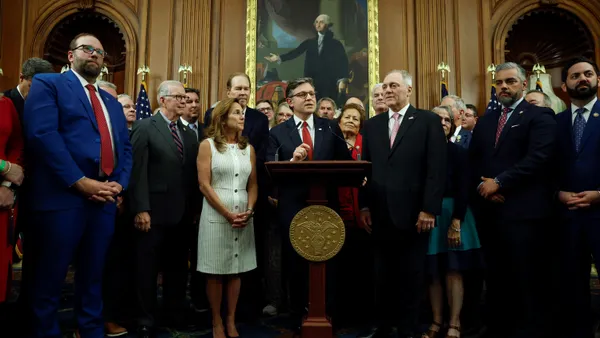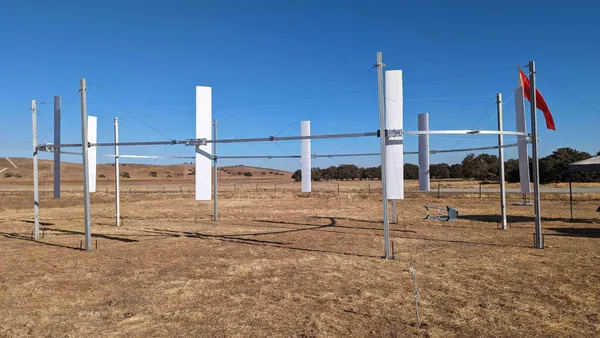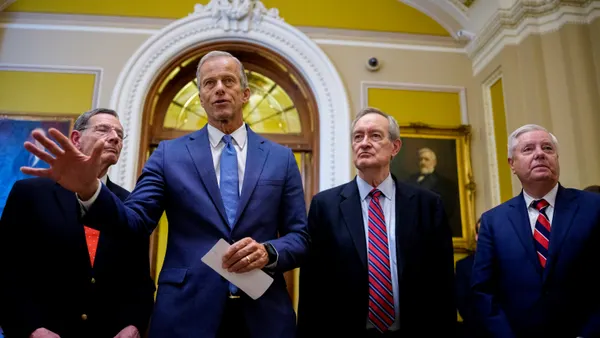Dive Brief:
- Voters in Florida have rejected a ballot initiative widely seen as anti-solar, with votes falling short of the 60% needed to pass the utility-backed measure, according to multiple media reports.
- In Washington, voters rejected a controversial carbon tax that would have been the first of its kind in the nation, according to the Seattle Times.
- And Nevada voters have given initial support to a ballot initiative that would end NV Energy's monopoly, though the measure must also pass in 2018 to become effective.
Dive Insight:
Results continue to trickle in, but voters in several states have elected to take greater control over their energy future. In Florida, a utility-backed solar measure was defeated and in Nevada, voters elected to end the utility-controlled energy landscape.
In Washington, the state has rejected a proposed carbon tax that would have been groundbreaking in its approach to climate change.
In Nevada, LasVegasNow.com reports a measure to end NV Energy's control of the market has passed, though voters will need to reaffirm that decision in 2018. Nevada's Energy Choice Initiative means consumers will be free to shop for electricity suppliers. Large consumers, such as some casino operators in Las Vegas, were largely behind the option. Some major casinos defected from NV Energy's service, paying millions of dollars in exit fees to have the ability to purchase clean energy in open markets.
In Florida, voters have rejected a measure supported by utilities and widely-seen as a negative for the state's solar industry. The measure would have ensured that third-party ownership of distributed solar remained illegal, and many saw it as a way to enshrine utilities' monopoly over solar energy.
And in Washington state, voters have rejected a carbon tax that would have been a first-in-the-nation approach to tackling climate change. While the groundbreaking method was rejected, climate change advocates hailed the effort.
“Nobody gave this campaign a chance of being competitive at first, but surprising numbers of voters demonstrated a hunger for solutions. They want to get started beating climate change,” National Audubon Society President and CEO David Yarnold said in a statement last night.
The initiative would have enacted a tax of $15/metric ton of emissions in July 2017, rising to $25 in July 2018, and then 3.5% annually until $100. But its outcome was hampered by weak support among local advocates, who wanted to see the proposal structured to generate revenue that could be used on clean energy projects.
The state results pale, however, in comparison to the shock of Donald Trump taking the presidency. The Republican will now have wide latitude to impact climate change policy, especially since the Republican party now controls the House of Representatives and the Senate.
“Our energy system is going through a transformational change in response to new technologies, new consumer preferences, and new challenges,” Advanced Energy Economy CEO Graham Richard said in a statement issued this morning. "The advanced energy industry can contribute to the many urgent needs facing our country, and we look forward to working with President Trump to deliver an advanced energy future for the nation.”
The United States is a major signatory to the Paris climate accord, in which almost 200 nations agreed to keep the impact of climate change below 2 degrees Celsius. For the United States, that would mean cutting emissions 26% by 2025.
Trump has vowed to do away with the Clean Power Plan, President Obama's signature climate change initiative and the engine behind meeting the Paris commitments.














